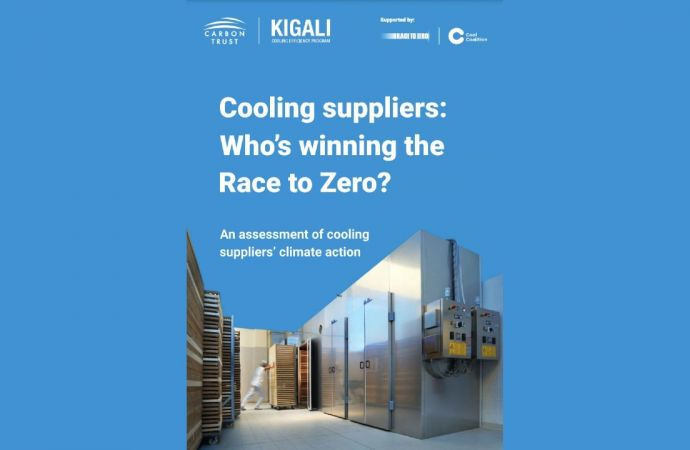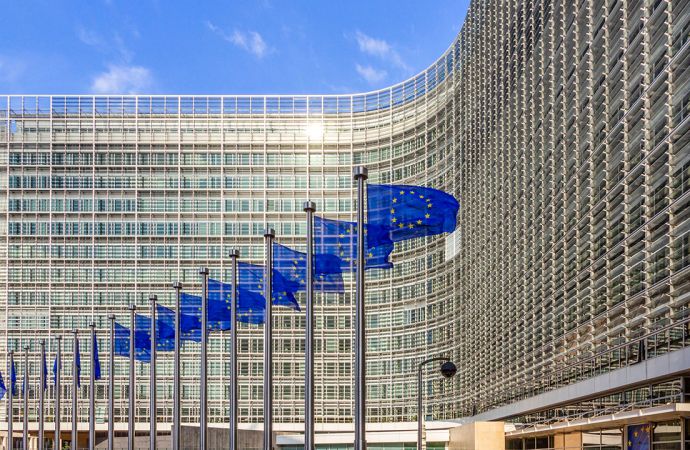At the end of May 2014, the China’s State Council announced a short-term target to reduce emissions of hydrofluorocarbons (HFCs) by 280 million tonnes of CO2 equivalent by 2015. In addition, a Chinese government official announced that the next five-year plan starting in 2016 will for the first time include controls on CO2 emissions by an absolute cap.

The announcement by the State Council on reduction of HFC emissions was included in the 2014-2015 Energy Conservation, Emissions Reduction and Low Carbon Development, released to the public on 26 May 2014.
Action Plan encourages replacement of HFCs with alternatives
The Action Plan sets a target for the reduction of carbon emission of at least 4% in 2014, 3.5% in 2015 through industrial restructuring, energy-saving construction projects, upgraded coal-fired boilers, and motor vehicle emission reduction. The Plan supports installing of energy-saving technologies in industry, construction, transportation and public facilities and encourages reduction of HFC emissions through accelerated destruction of these gases and replacement with alternative refrigerants used in refrigeration and air-conditioning. The goal for HFC emission reduction is the equivalent of 0.28 billion tonnes of CO2 by 2015.
The Action Plan emphasizes strengthening of the government policy in support of taxation and electricity demand management, whilst increasing government investment in carbon emission reduction and helping to finance the green economy development. The Plan also urges public participation to enhance the awareness of corporate social responsibility to encourage corporate emissions reduction.
China’s absolute cap on emissions to drive talks on new global climate treaty
Chinese President Xi Jinping stressed that innovation and technology will play a key role in environmental protection of China, during the 2014 International Conference on Engineering Science and Technology in Beijing held on 3 June. In the next five-year plan starting in 2016, China will set an absolute cap on its CO2 emission, said He Jiankun, chairman of China's advisory Committee on Climate Change, during the conference.
While the details of the five-year plan and the emissions cap are still to be defined, the announcement might be a signal of altering Chinese climate policy. On a global scene it is generally considered a potential game-changer in the climate negotiations. Up until now China had refused to consider an absolute cap on emissions, which as one of the key factors contributed to the failure of 2009 climate negotiations in Copenhagen. The announcement could therefore provide a boost to the talks leading to negotiations on a new global climate treaty expected to be adopted in 2015.
Action Plan encourages replacement of HFCs with alternatives
The Action Plan sets a target for the reduction of carbon emission of at least 4% in 2014, 3.5% in 2015 through industrial restructuring, energy-saving construction projects, upgraded coal-fired boilers, and motor vehicle emission reduction. The Plan supports installing of energy-saving technologies in industry, construction, transportation and public facilities and encourages reduction of HFC emissions through accelerated destruction of these gases and replacement with alternative refrigerants used in refrigeration and air-conditioning. The goal for HFC emission reduction is the equivalent of 0.28 billion tonnes of CO2 by 2015.
The Action Plan emphasizes strengthening of the government policy in support of taxation and electricity demand management, whilst increasing government investment in carbon emission reduction and helping to finance the green economy development. The Plan also urges public participation to enhance the awareness of corporate social responsibility to encourage corporate emissions reduction.
China’s absolute cap on emissions to drive talks on new global climate treaty
Chinese President Xi Jinping stressed that innovation and technology will play a key role in environmental protection of China, during the 2014 International Conference on Engineering Science and Technology in Beijing held on 3 June. In the next five-year plan starting in 2016, China will set an absolute cap on its CO2 emission, said He Jiankun, chairman of China's advisory Committee on Climate Change, during the conference.
While the details of the five-year plan and the emissions cap are still to be defined, the announcement might be a signal of altering Chinese climate policy. On a global scene it is generally considered a potential game-changer in the climate negotiations. Up until now China had refused to consider an absolute cap on emissions, which as one of the key factors contributed to the failure of 2009 climate negotiations in Copenhagen. The announcement could therefore provide a boost to the talks leading to negotiations on a new global climate treaty expected to be adopted in 2015.
MORE INFORMATION
Related stories



